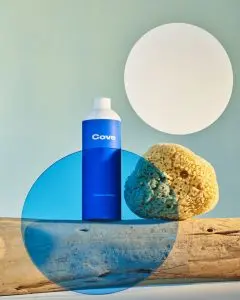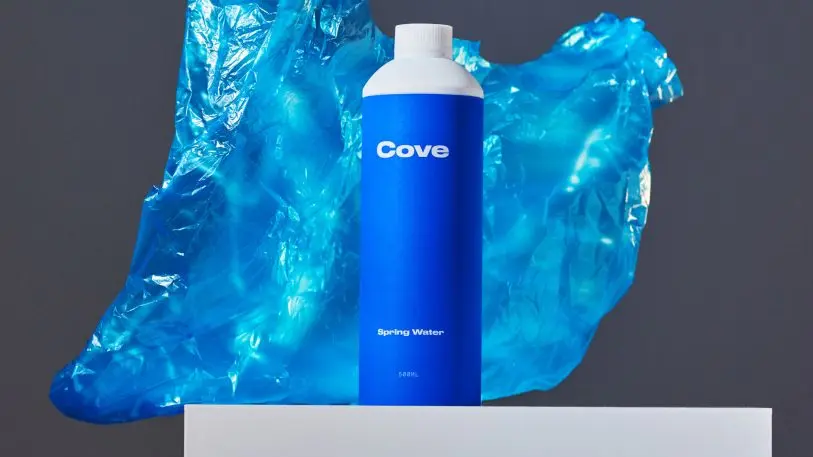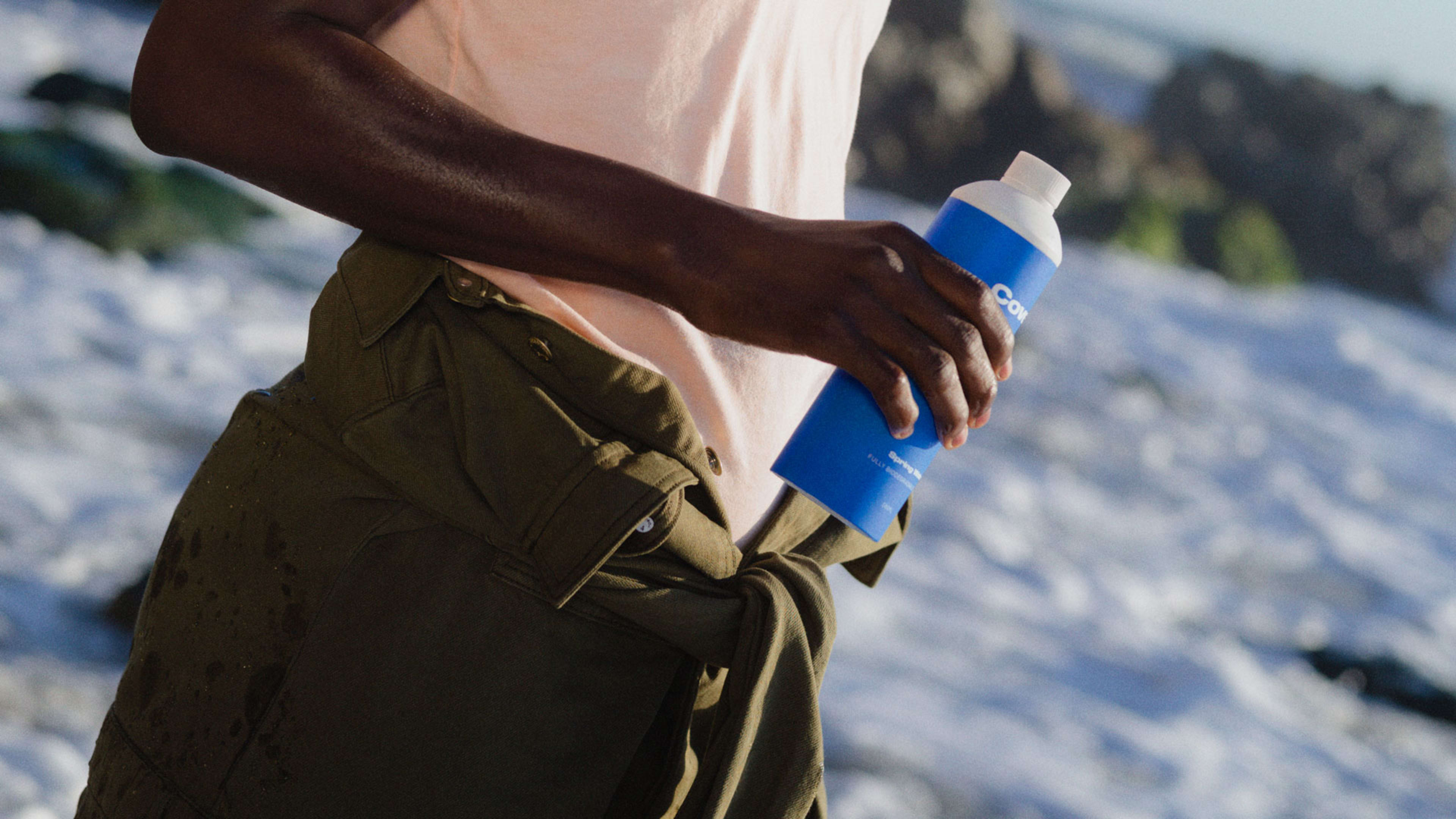“It just became very clear that the reason we have a problem with plastic pollution is convenience, and trying to change that delivery mechanism is going to be very difficult,”says Alex Totterman, founder of new bottled water company Cove. “And we don’t really have time. We’re looking at probably less than 30 years and we’ll have an ocean filled with more plastic than fish. While cleanup efforts are really important, we also just need to stop the amount of plastic going into our environment, especially single-use plastic.”
So Cove, which is launching later this month, is packaged in a bottle made from a biopolymer called PHA. If the bottle ends up in a compost bin or landfill–or even the ocean–it will fully biodegrade.
“For the last two years, we’ve been working on really providing a direct alternative to the single-use plastic bottle,” says Totterman. He previously worked at a nanotechnology company on water purification, and had initially considered making a filter that people would use at home. But he realized that wouldn’t solve the problem.

Unlike other types of bioplastic, like PLA made from corn, the material doesn’t have to go into an industrial composter to break down. It just requires the presence of microbial activity that occurs naturally in soil or the ocean (but which keeps it from disintegrating on the shelf). “PHA is the only polymer that’s fully biodegradable in all conditions,” he says. “So it’s kind of sidestepping the need for the recycling system we have.” If someone can’t drop the bottle in a compost bin, it’s fine if it ends up in the trash, which isn’t true for some other alternatives to PET plastic bottles, including those made from paper mixed with other materials. “Most of all, this comes down to the very basic premise that we’re just trying to give people something real that they can do without seeming like it’s a big deal.”

The company also plans to source water near the markets where it sells. “It’s an industry that’s notoriously unsustainable and often involves shifting water across oceans and using huge amounts of energy to transport these bottles around,” says Totterman. “So we’re always going to set up production as close as possible to where we’re distributing them to.” That comes with challenges–the brand will launch first in Los Angeles on February 28 before expanding to other parts of the United States, and sourcing water in drought-prone California can be problematic. (The company, which is a public benefit corporation, has guidelines that say it won’t source from areas that are currently in a drought.)
Larger beverage companies, which are slowly making commitments to improve their packaging, will also need to radically change. “We’re building with the full intention of seeing these big companies transition to working with us or working with PHA,” says Totterman. “And we need to work with them. We’re not the enemy.”
Ultimately, a reusable bottle is a better solution, since making a biodegradable bottle still takes resources, and the bottle also takes time to biodegrade. Some might also argue that it perpetuates single-use culture. But the company believes that it’s necessary to give consumers another choice on retail shelves, and a viable way to deal with the fact that around a million plastic bottles are now produced each minute. “We’re trying to equip people with the tools to overcome this problem,” he says.
Recognize your brand’s excellence by applying to this year’s Brands That Matter Awards before the early-rate deadline, May 3.
